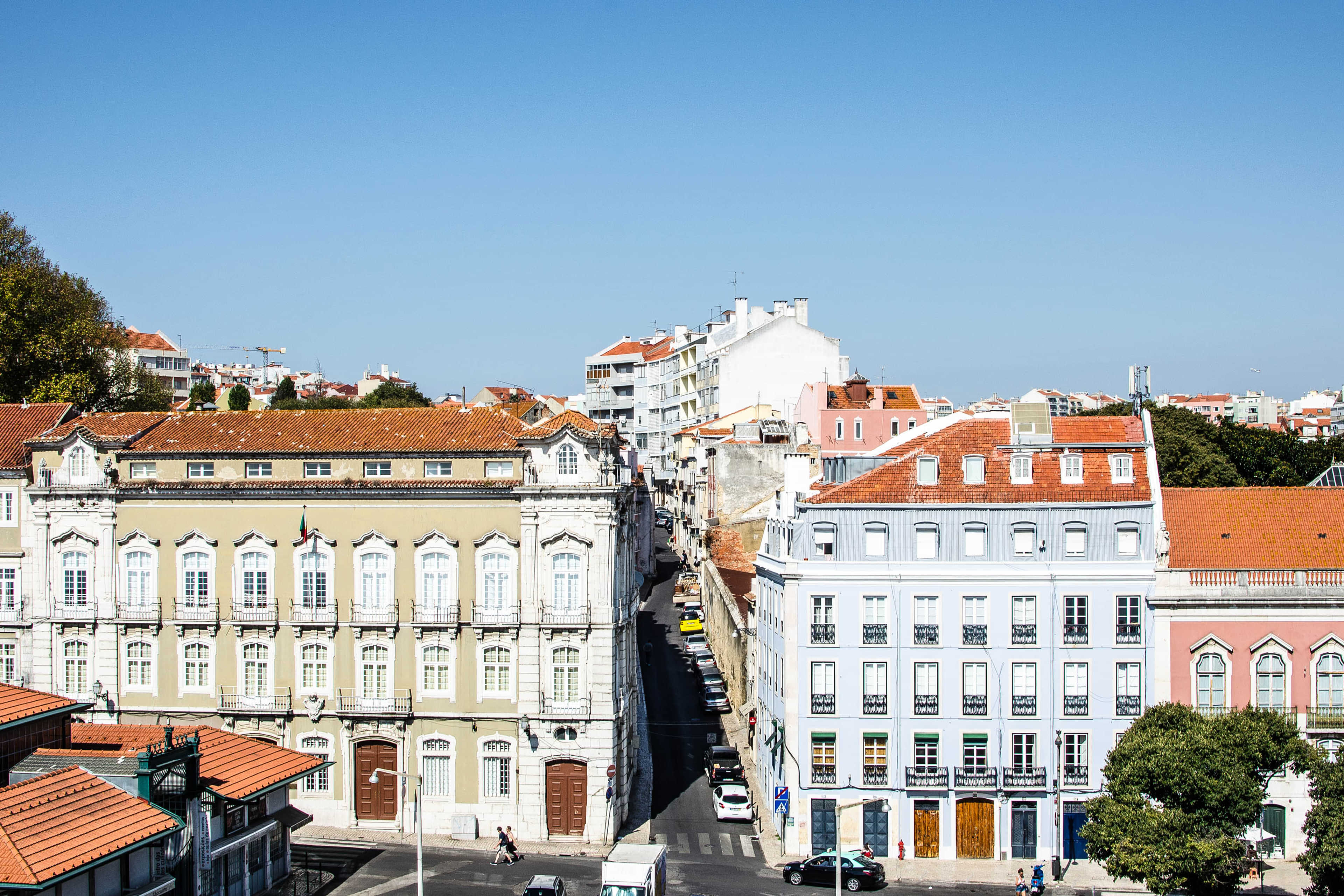
Live abroad
Finding long-term accommodation in Lisbon: Mission Impossible!?
Destinations
Joanna Horanin
Hi, I'm Joanna, the author of The Blond Travels. In the worlds of Thailand and Portugal, I feel like a fish in water - and it's no coincidence! I've been exploring Thailand for over a decade, and I've settled in Portugal for 6 years now. My mission is to support Dreamers - just like you - in discovering these fascinating countries and helping those in love with them find their own place on Earth, preferably for good! Let's uncover these unique corners of the world together.
- When to start looking for your first apartment in Lisbon?
- Types of apartments in Lisbon and Portugal
- Best locations to live in Lisbon
- Where to look for apartments in Lisbon?
- What to expect from the prices and apartments?
- How does a rental process look like?
- Your plan for a smooth rental process
We arrived in Lisbon in September 2018. We spent a whole month looking for an apartment. During this time we lived in an Airbnb, for which we paid a lot of money for the conditions there. After a week, I started to get stressed and we both thought that we would come back to Germany or Thailand. Fortunately, we managed to find an apartment in Lisbon, which, unfortunately, did not match our previous ideas. After a few months of dealing with humidity, cold and cockroaches, we found another apartment thanks to a friend. There we spent 2 years before buying our apartment in Barreiro. I hope that with the following article you will be spared dealing with the local real estate market reality.
Any search for an apartment, even one to buy was long and required a lot of patience. In Portugal, housing standards are very low and prices are high. Landlords also require large deposits, payslips and tax returns. On top of all this, you must have all the legal paperwork already prepared, including the NIF.
In this article, I will give you everything you need to know to rent a long-term apartment in Lisbon. This post is for people who want to live in the Portuguese capital for the long term and dream of living here.
When to start looking for your first apartment in Lisbon?
Lisbon is not only a tourist city, but also a student city. That’s why it’s a good idea to come to the city during the low season and outside the periods when students flock to the city. The best time to look for apartments is November-March/April. That’s when it’s possible to see how cold and damp the place is during these not-so-sunny months.
Looking for an apartment if you are not already in Lisbon seems to me to be inefficient and dangerous. There are scammers lurking for unaware immigrants. There are a lot of ads for apartments that are cheap and look very nice. Unfortunately, after contacting the owner, it turns out that he/she is outside Portugal, but if you pay a deposit, they will leave the keys with a friend. Often, of course, you end up losing your money. That’s why it’s best to look for an apartment when you arrive on site. You can then go yourself, check everything, talk to the owner and negotiate the price.
That’s why it’s best to look for an apartment when you arrive on site. You can then go yourself, check everything, talk to the owner and negotiate the price.
Before you leave, of course, you can look for properties on the Internet. This will certainly give you an idea of how much you have to spend and what is available.
You can find apartments for short-term rentals on Airbnb and they are ready to move in right away. With long-term rentals, it can be a longer period of time. Many landlords do not respond to emails. If they decide to rent you an apartment, you have to wait until they get the contract, check your documents and prepare the apartment. Sometimes this can take a bit longer.
Types of apartments in Lisbon and Portugal
- In Portugal, we generally describe apartments like this:
- Apartment T0 is a studio apartment
- Apartment T1 is a one-bedroom apartment
- Apartment T2 is a two-bedroom apartment
Living alone is, of course, a super option. However, it is the most expensive rental and you have to expect prices that do not reflect the standard.
There are apartments and houses available for rent as a whole, but you can also share them with other people by renting one of the rooms. It’s a good idea to check how many people are in a particular apartment, as I recently saw such accommodations where there were bunk beds in one room and 5 people slept there.
For nomads and those coming here for a shorter period of time, co-living arrangements are available. There aren’t many of them in Lisbon, but if you search early enough, you’re sure to find something to your liking. Prices vary, depending on square footage and location. This is definitely a super option for those looking for the company of other nomads.
Best locations to live in Lisbon
The most expensive areas to live in Lisbon are Alfama, Baixa, Bairro Alto and the Rato area. These are the most prestigious locations, but they are also characterized by noise and crowding. A lot of tourists hang around there and there is not that much space. Houses practically stand on top of each other. Prices are also very high.
Recently, neighborhoods that until recently were considered either unsafe or run-down have become very popular. Many people who want to live in ‘trendy’ areas choose Marvila or Alcântara. Both areas have good access to the center and offer plenty of entertainment and lots of hipster cafes, bakeries, stores and bars.
If you don’t have a lot of money to spend, I recommend Benfica, Olivais or Amadora. It may not be beautiful there and some parts resemble a concrete jungle, but the prices are fairly affordable.
Some people, including the Portuguese themselves, go outside Lisbon and further from the center. They do so because of the prices, of course, but some places are quiet, peaceful and not as crowded as the previously mentioned neighborhoods. Here you can check out: Barreiro, Almada (both are across the river) or Oeiras.

Moving to Portugal? Bordr.io takes care of all the paperwork, so you can focus on enjoying your new life. Get your NIF, open a bank account, file your tax return and more, all in one place.
Where to look for apartments in Lisbon?
Anyone bringing themselves to Lisbon for an extended period of time starts by looking online. The most popular site is Idealista. There you can check prices in different locations and contact the owner right away.
Other sites include Imovirtual, Casa Sapo, and for students, Uniplaces.
Facebook groups are also useful. You can announce there that you are looking for an apartment. It’s not always effective, but a couple of my friends found a place that way. Recommended groups are: Poles in Portugal, Girls in Lisbon, Expats in Lisbon.
Local real estate agencies can also be useful. Check out Remax and Century21.
If you’re in Lisbon, take a walk and look out for signs – arrenda-se. It means ‘for rent’. There is always a phone number for the agency on the sign.
The last place I can recommend is OLX, although it is certainly the least effective way and you have to watch out for scammers here.
What to expect from the prices and apartments?
Here are sample apartment prices in Lisbon for 2025. Prices for apartments and rooms are in the Arroios area – a neighborhood close to the center, with good access.
- T0 studio – from 500 euros
- T1 – from 750 euros
- T2 – from 1,000 euros
Prices for single rooms start at 400 Euros. For a nice, well-kept room you have to pay already about 600-650 Euro or more.
To rent an apartment very often you need to have:
- Portuguese NIF tax number
- Payslips from the last 3 months
- A certificate of taxes
- A contract of employment in Portugal or a certificate of incorporation
- A guarantor who is Portuguese
- Deposit – sometimes it’s the equivalent of 2 months’ rent, sometimes 3, but it can also be more, especially if you don’t have all the documents.
Bills are often not included in the rent, so you have to count them separately. Here I have included the basic costs of living in Lisbon.
Apartments in Lisbon are often unfurnished. You’ll also need to prepare for the additional cost associated with furnishing your accommodation.
How does a rental process look like?
Let’s start with the fact that you need to contact the owner. If you use the Idealista website, the number to the owner is listed in the ad. It is very common that these people do not answer the phone or do not want to accept foreigners and will refuse you right away, on the spot. Knowledge of Portuguese comes in very handy. Just trying to get along with someone can give you a chance to get an apartment.
After making a phone call, you make an appointment to meet and view the apartment. My advice is to be dressed nicely and be polite. Portuguese people unfortunately have a lot of prejudice against visitors. For example, it is openly said here that Brazilians or immigrants from African countries are less likely to rent. I faced similar rejections, where I had the impression that they looked at my background. After a while, I started saying that I was from the UK and using my passport from England, which actually changed the attitude of the owners.
Read everything carefully when signing the contract. It will most likely be in Portuguese. Pay attention to the notice period and the terms for returning the deposit.
Very often owners do not want to be paid by wire transfers and prefer cash. The reason, of course, is taxes, which are very high in Portugal. How you want to pay is up to you. Once a year, those who are employed as tenants receive a tax refund. It also includes some percentage of the rent. In addition, if you want to buy an apartment here someday, the bank at the time of evaluation will also want confirmation that you have paid rent before. So it’s worth considering whether cash is such a good idea.

The peace-of-mind money app. Get GBP, EUR and RON accounts in minutes with great exchange rates, instant top-ups, built-in Bills & Purchase Protection, and simple credit.
Use coupon code joann481 on signup and get 15€.
Your plan for a smooth rental process
To rent an apartment in Lisbon in a quick and effortless way, you will need:
- Get yourself a Portuguese NIF number. I recommend Border.io, who handle this professionally and you will get your number quickly and without too much trouble.
- Talk to your employer and see if they will be able to help you get the other certificates out. This is important when you bring yourself here.
- Learn some Portuguese. Knowing the language opens many doors in Portugal.
- Set up notifications on the Idealista website and look there as often as possible.
- Be prepared to respond quickly. Apartments here are spreading like hot buns.
- Try to meet as many people as possible. Come to meetups, advertise on Facebook pages, write to people who live here.
Renting an apartment in Lisbon is not an easy thing to do. Finding a place can take a long time and be an arduous search. It is also expensive because of the high deposits and the need to furnish the apartment. I’ve managed to live here and find my corner and I’m sure you will too. You need to have some patience and prepare yourself for the whole process. And once you find a place to live, you can fully enjoy your life in Portugal afterwards.